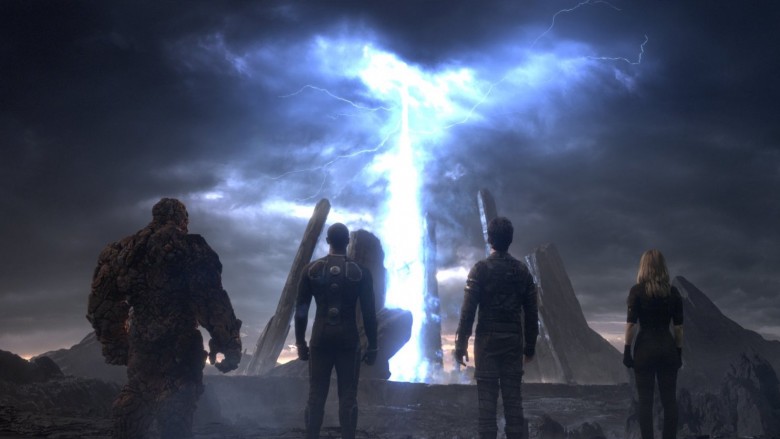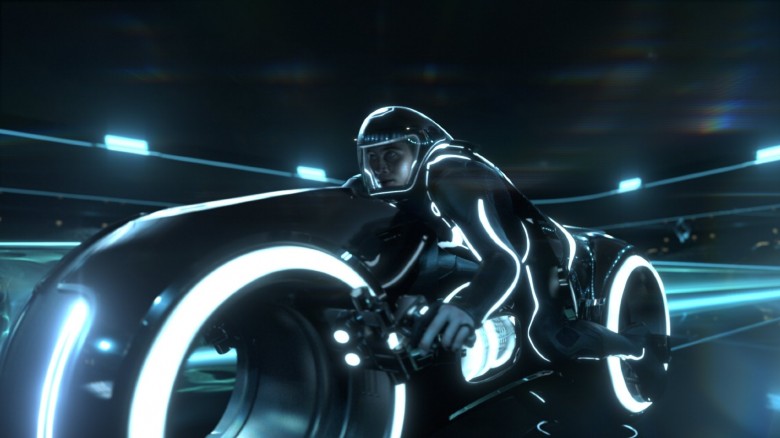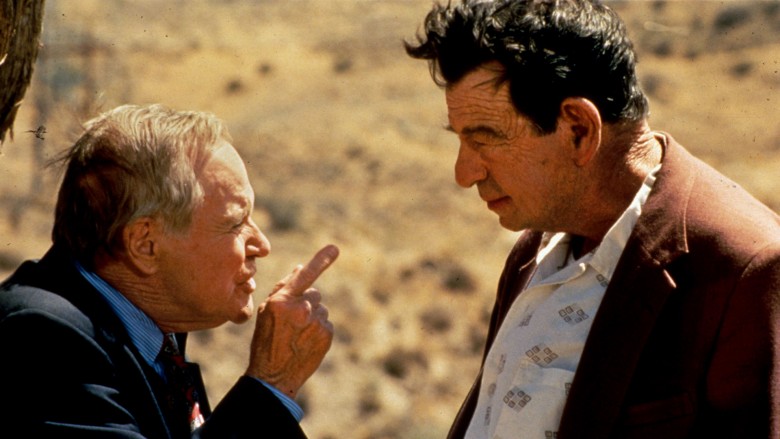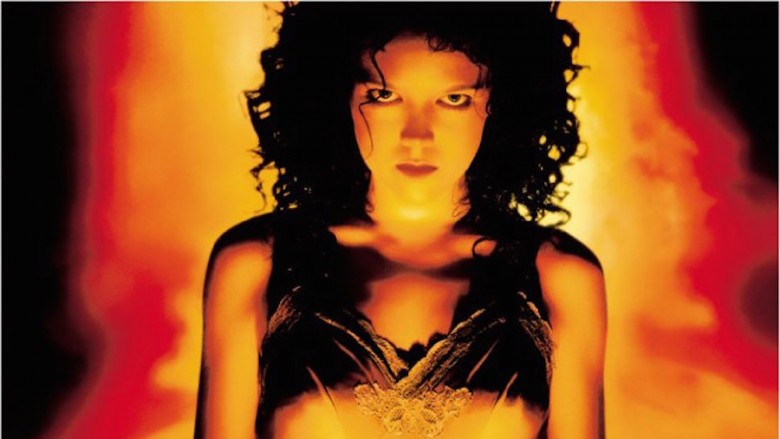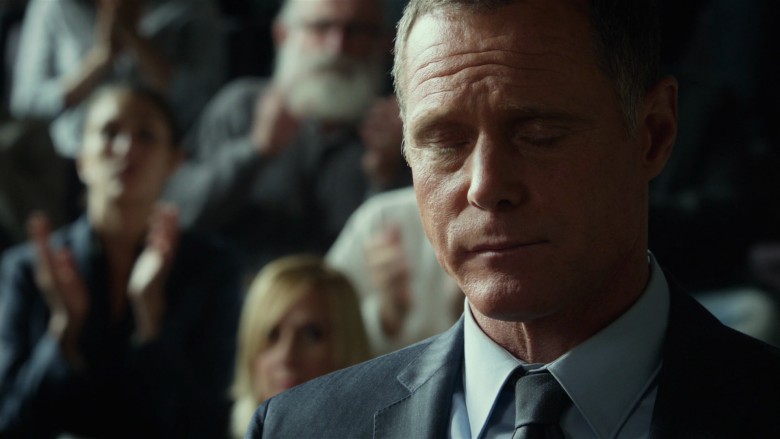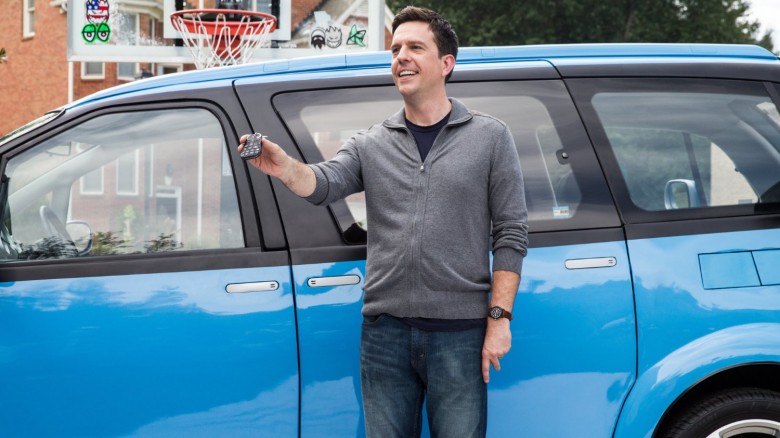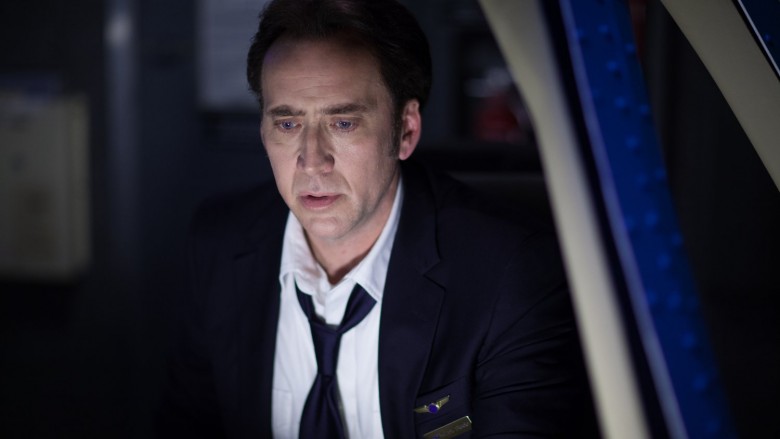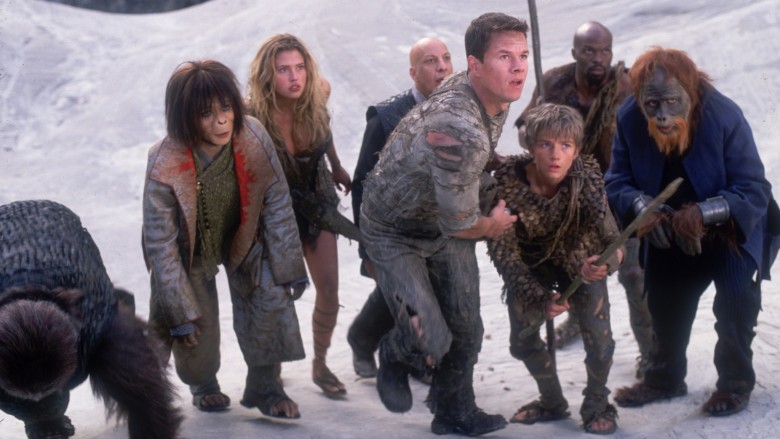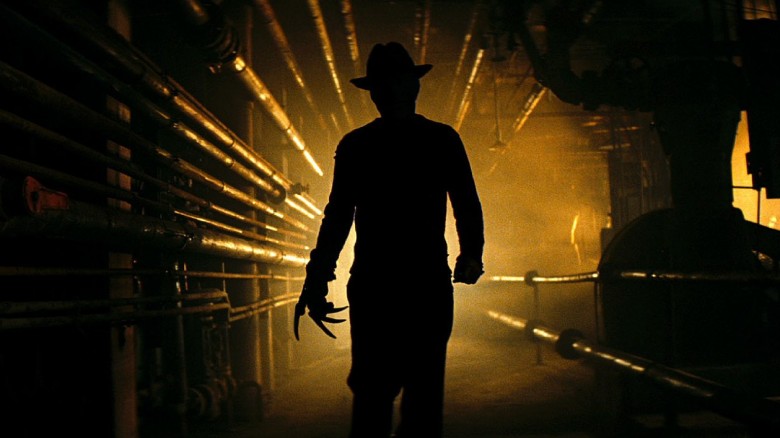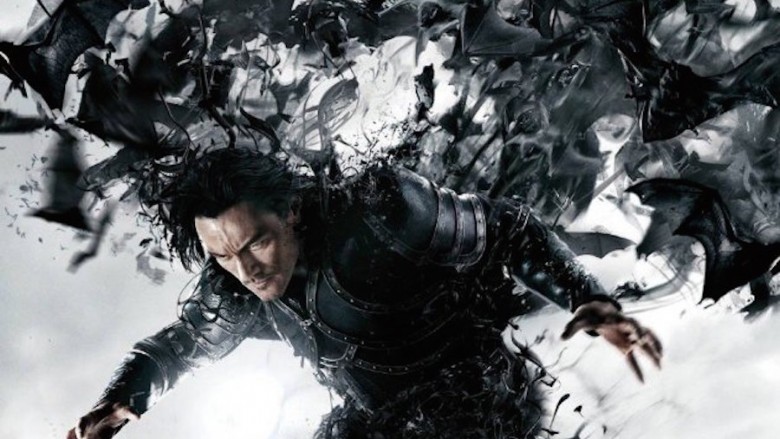Franchises That Tried To Make A Comeback And Failed
Movie studios love making lots of money—and it's even better if they can rake it in without having to try anything new. What better way to achieve that goal than reviving a popular franchise? Unfortunately for producers, not all reboots become the money-making machines they'd hoped. Here are some franchises that tried to make a comeback and failed miserably.
Fantastic Four (2015)
The Fantastic Four has not had an easy time translating from page to screen. Though the Jessica Alba and Chris Evans-led version made good money for Fox in 2005, neither the origin story nor the sequel did well with critics and it never came close to reaching the fan fervor that's become par for the course with the Marvel Cinematic Universe.
Fox really thought they had a chance with the 2015 reboot. They hired edgy indie director Josh Trank, known for Chronicle, in an effort to give the team the dark, gritty adventure they deserved; unfortunately, it didn't turn out too fantastic. Trank had problems with producers right away and rumors of the movie being a mess quickly got to the press. When the publicity tour started, it was clear the actors weren't pleased with the film, or having to spend another second of their lives dealing with the Fantastic Four. To put the final nail in the coffin, Josh Trank tweeted (then deleted) "A year ago I had a fantastic version of this. And it would have great reviews. You'll probably never see it. That's reality though." The film debuted to horrible reviews and bombed hard. From the bland origin story to the garbage reshoot wigs, there wasn't much to love about the quirky quartet.
This still might not be the end of the Fantastic Four franchise. Fox had to put a FF movie into production by 2014 or they'd lose the rights—and the 2015 reboot reset the clock until 2022. The studio's had an undeniably bumpy road with this property, but it's worth noting that people have taken desperate measures to hang onto it in the past. A German film company called Neue Constantin got the rights to the Fantastic Four before superhero movies were even really a thing, and after the success of Batman, Constantin was ready to roll. Funding struggles nudged them perilously close to the 1992 cutoff date that would revert the rights to Marvel if the movie didn't come out, so the studio exploited a loophole in the contract and made a placeholder production no one was ever supposed to see. Sadly, they didn't tell the actors, though if you see clips from this original Fantastic Four, keeping the movie out of the public eye was really a favor.
Tron: Legacy (2010)
Though the nation didn't seem to be clamoring to see Jeff Bridges don a white unitard again, Disney felt a sequel for the 1982 cult classic Tron was well overdue. This time Disney invested in a full effects budget, revved up their Light Cycles, and used CGI to make a young Jeff Bridges that only looked semi-creepy. But for Disney's $170 million investment, the movie only made $172 million domestically. Reviews were just okay, but the film had its fans, and Tron racked up $228 million overseas, so Disney went ahead with plans for Tron 3.
After years in limbo, Disney pulled the plug on the project in May 2015. But it's too hard for a studio to say no to a sequel, and in early 2017, reports leaked that Tron 3 might happen after all. The project as described won't exactly be a sequel per se, but might use ideas from the previous films and discarded scripts, leading to a film in which the computer world of Tron infiltrates the real world (and stars Jared Leto). Tron: Legacy might not be a failed franchise after all. We'll just have to wait and see. In the meantime, we're looking forward to hearing about all the inappropriate pranks Leto pulls on Jeff Bridges.
Odd Couple II (1998)
Walter Matthau and Jack Lemmon teamed up in 1966 to make Billy Wilder's The Fortune Cookie, but Neil Simon's The Odd Couple cemented them as a comedic pair for the ages. The movie spawned a successful TV series, has been performed in a million high schools, and inspired another remake that aired on CBS. Basically, everybody liked The Odd Couple.
Naturally, Paramount decided to wait 30 years and make a sequel, and it's putting it mildly to say Odd Couple II didn't enjoy the same acclaim as the original. As Roger Ebert put it,"[Matthau and Lemmon} are funny, familiar, edgy and smart. The Odd Couple II is none of those things, and a much longer list could be made of other things it is not." The studio's attempt to capitalize on the unexpected success of Grumpy Old Men didn't work out, and the second Odd Couple ended up as the 91st highest-grossing film in 1998. Pretty sad compared to the number four slot the original got in 1968.
The Rage: Carrie 2 (1999)
The idea of seeing Carrie rise from the dead and rage all over the nation to find justice for weird girls everywhere sounds pretty amazing. Sadly, The Rage: Carrie 2 was made under the assumption that people wanted to see Carrie again...only more boring. Following all the plot beats from the first film, except the pigs' blood and amazing performances from Sissy Spacek and Piper Laurie, The Rage feels like a bad emo cover of the original.
After Carrie 2 made only $17 million against a $21 million budget, Carrie 3 wasn't in the cards. Still, MGM really thought they could make a Carrie world happen with another version in 2013. Starring Chloë Grace Moretz and Julianne Moore, this well-cast remake seemed to offer a chance for Carrie to make a real comeback, but although the film earned better reviews than The Rage and made its money back, it couldn't come close to reviving the frightening intensity of the original.
Atlas Shrugged Parts II and III (2012, 2014)
Now, you have to give Atlas Shrugged a little credit: the filmmakers managed to complete their trilogy despite horrible box office and an ever-changing cast. It's all because of John Aglialoro, an executive with a background in manufacturing commercial exercise equipment, who bought the rights to the novel and started Atlas Productions with the sole purpose of making Atlas Shrugged Parts I,II, and III.
Though Atlas Productions had no studio money and had to shoot the film in two months before Aglialoro's rights lapsed, they pressed on; for all their hard work, they were rewarded with terrible reviews and a complete lack of interest. Aglialoro had to regroup, and brought in outside investors for the second film, got a new production crew, and hired a completely different cast since no one from the original was contracted for the trilogy. Atlas Shrugged: Part II failed to match the first installment's gross of $4.6 million against a $20 million budget, bringing in only $3.3 million on a $10 million budget.
Still, Aglialoro figured people would need to know the ending to this libertarian trilogy, so he pushed on. This time, though the film was fully funded, he launched a Kickstarter campaign to try to make a little more and make "haters come alive." With almost $450,000 of crowdfunded money and another completely new cast, the series came to an end with Atlas Shrugged Part III: Who is John Galt? This time, they couldn't achieve the critical heights of the first two (10% for Part I and 4% for Part II on Rotten Tomatoes). The final chapter managed to score an impressive 0%, and couldn't even crack a million dollars at the box office. Though we were graced with the presence of the entire Ayn Rand novel, all the money and time lost making this franchise certainly qualify it as a failure.
Vacation (2015)
Almost 20 years after the last Vacation movie, a new extension of the Griswold clan seemed like a pretty good idea. The idea of Ed Helms playing a grown-up Rusty as the misguided patriarch sounded like an interesting turn from the Chevy Chase years, and with the writer of Horrible Bosses, the new Vacation had hope. But with critics saying things like, "You can't do much worse at the movies than Vacation," things didn't look good for the rebooted franchise. In the end, though it made its money back, it was a disappointment. In fact, when adjusted for inflation, it made even less than Vegas Vacation, which put the franchise on deep freeze for nearly two decades. Looks like they'll be recasting Rusty again if the studio decides to take another Vacation.
Escape from LA (1996)
Another franchise attempt more than 15 years after the original, Escape from LA didn't recapture the John Carpenter/Kurt Russell magic of Escape from New York. It's not for lack of familiarity; in fact, the sequel had the exact same plot as the original. It was so similar, in fact, they could have just screened Escape from New York with "Los Angeles" dubbed over the dialogue from time to time. But people weren't into Snake Plissken anymore. Both Escape from New York and Escape from LA made $25 million—which wouldn't seem so bad if it weren't for the years of inflation between the two.
It's a shame the sequel didn't take off, because director John Carpenter had big plans. Before LA was released, he talked about another planned sequel, Escape from Earth, that would have sent Snake to space. Though that never came to be, Russell and Carpenter nearly brought the Escape From franchise to TV. Ain't It Cool News reported that a Snake series would premiere in 2001, with a new actor taking on the role. It fell through, however, and it looks like Escape from LA will be the last we see of Snake Plissken.
Left Behind (2014)
Based on the bestselling Christian novel series, Left Behind was all set to become a major franchise. Well, not a major franchise—it was produced by indie studio Cloud Ten Pictures instead of a big company—but the Christian audience is large, and if the (mostly direct-to-video) Kirk Cameron-led original trilogy made enough money to earn three installments, the Left Behind reboot starring Nicolas Cage should have been a slam dunk. Sadly, critics found the film far from heavenly, with critic Linda Bernard quipping, "Score one for Satan."
Opening at number six at the box office over its opening weekend, the film only made $14 million against a $16 budget. Though that would seemingly kill any ideas of a movie franchise, Cloud Ten was desperate to make it happen. Producer and CEO Paul Lalonde told One News Now in 2015 that he was definitely making a sequel and planned for a summer 2016 release. When asked about the rushed schedule, Lalonde replied, "We are living in the Last Days, and if the Rapture were to happen today, there are a lot of people who just aren't ready. This is why we need to complete the story as soon as possible, beginning with Left Behind 2." Despite Lalonde's vow, summer 2016 has come and gone, and there's been no more news of resurrecting the series.
Planet of the Apes (2001)
Tim Burton making a Planet of the Apes film seemed like a perfect fit. What kind of interesting weirdness would Burton bring to the classic? Turns out it was the bad kind—like having Mark Wahlberg play an astronaut and changing the ending so President Lincoln was an ape.
Though the film made $362 million at the box office, its critical failure persuaded Fox to forgo a franchise. Even Wahlberg now admits the movie wasn't good, later telling CinemaBlend that the production was rushed and filming started before the script was finished. "They were pushing him and pushing him in the wrong direction," he insisted. "You have got to let Tim do his thing."
The second reboot proved the charm for the Planet of the Apes franchise. Rise of the Planet of the Apes and Dawn of the Planet of the Apes were both big hits, so we'll never get those damn, dirty apes off our screens.
Nightmare on Elm Street (2010)
Classic horror films have a tough time with reboots. After the Nightmare on Elm Street series gave slasher fans five films of mostly diminishing returns, Warner Bros. thought it was time to bring nightmare-dwelling child molester Freddy Krueger back. With Rooney Mara from The Girl with the Dragon Tattoo and the pretty perfect casting of Jackie Earle Haley taking over for Robert Englund as Freddy, the new version didn't look like a complete dud—but it was. Though it nearly doubled its budget at the box office, it also got the lowest score on Rotten Tomatoes of all the Elm Street films and was criticized for being too dour and depressing. Yeah, it was considered darker than The Dream Child, which featured Freddy possessing a baby and nun rape. With a reception like that, it's not a surprise that the Nightmare is over...for now.
Dracula Untold (2014)
There have been tons of Dracula movies, but Dracula Untold wasn't meant to be just another in the long canon: this creepy count was supposed to start a complete reboot of the Universal Monsters franchise. The studio has a rich history with its stable of iconic monsters, and Dracula Untold was planned as the first in a line of modern remakes, all connected as part of a cinematic universe. The film even shoved in an unnecessary twist to bring Dracula to modern times, most likely to fight with the Wolf Man or something. Though all the pieces were set, Universal forgot to do one key thing: make the movie any good.
Audiences didn't care for it and neither did critics. In one of the movie's better reviews, critic Scott Adams wrote, "If you can selectively ignore this litany of inanity, you may find some substantial earthy pleasures in Dracula Untold." Not quite glowing praise. Despite the slow start, Universal has continued moving forward with their Monster Universe, though they're leaving Dracula Untold behind. Alex Kurtzman, director of the Tom Cruise-led reboot of The Mummy, decisively told Collider that Untold is no longer considered canon. It's likely that Dracula will be around, but he'll be rebooted all over again. Poor Drac—he has to suck blood, but then he can't stop sucking.

